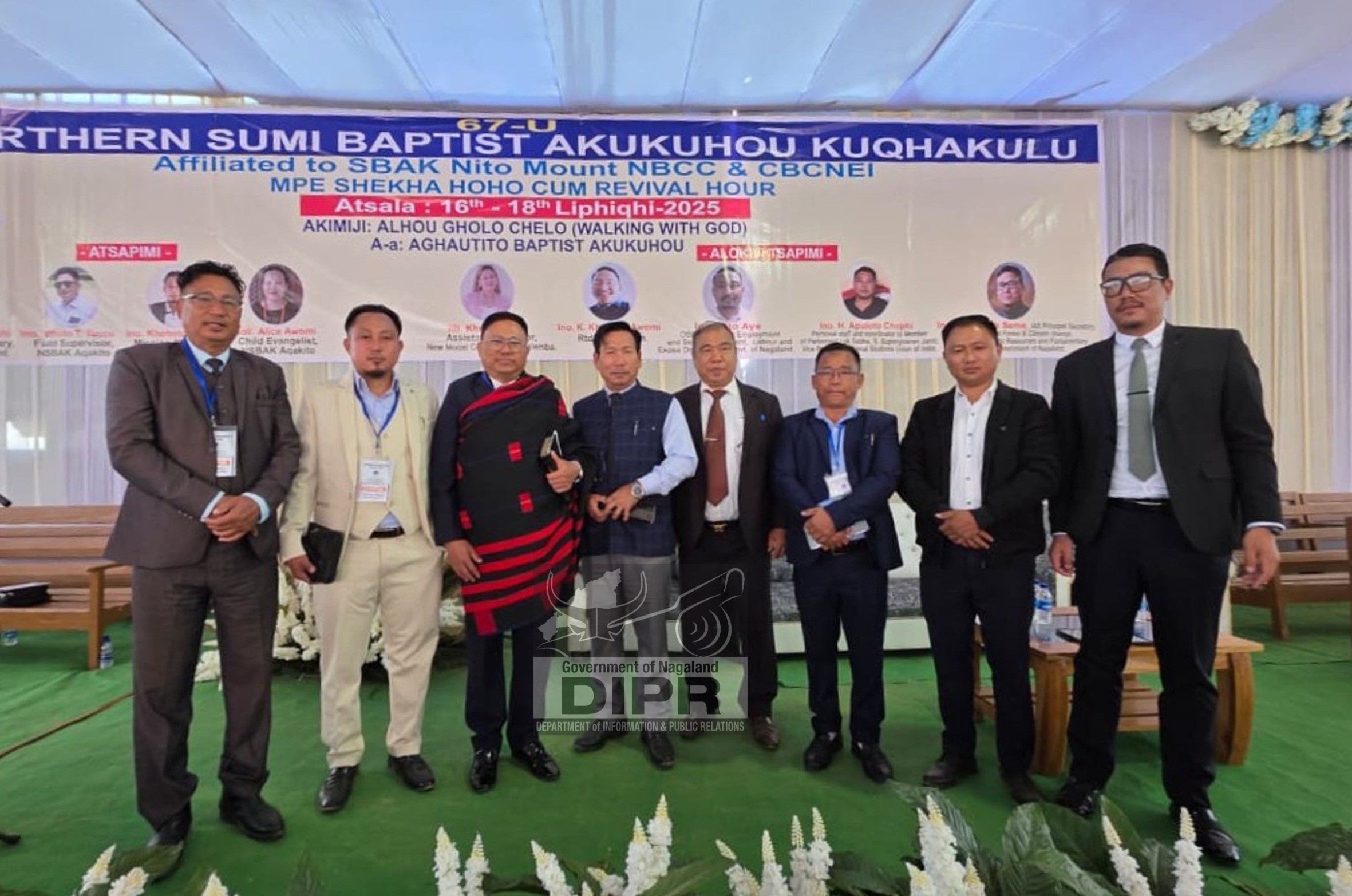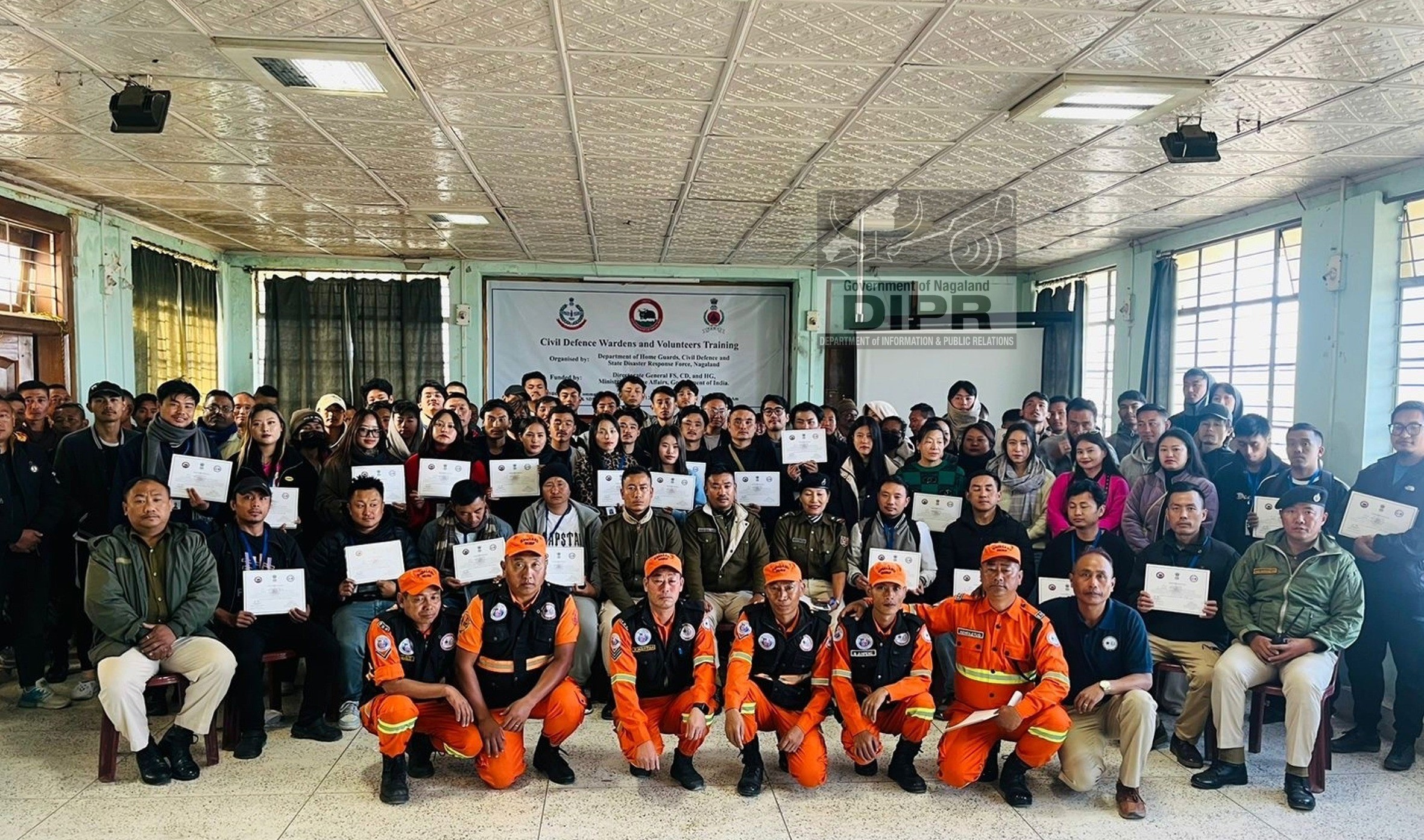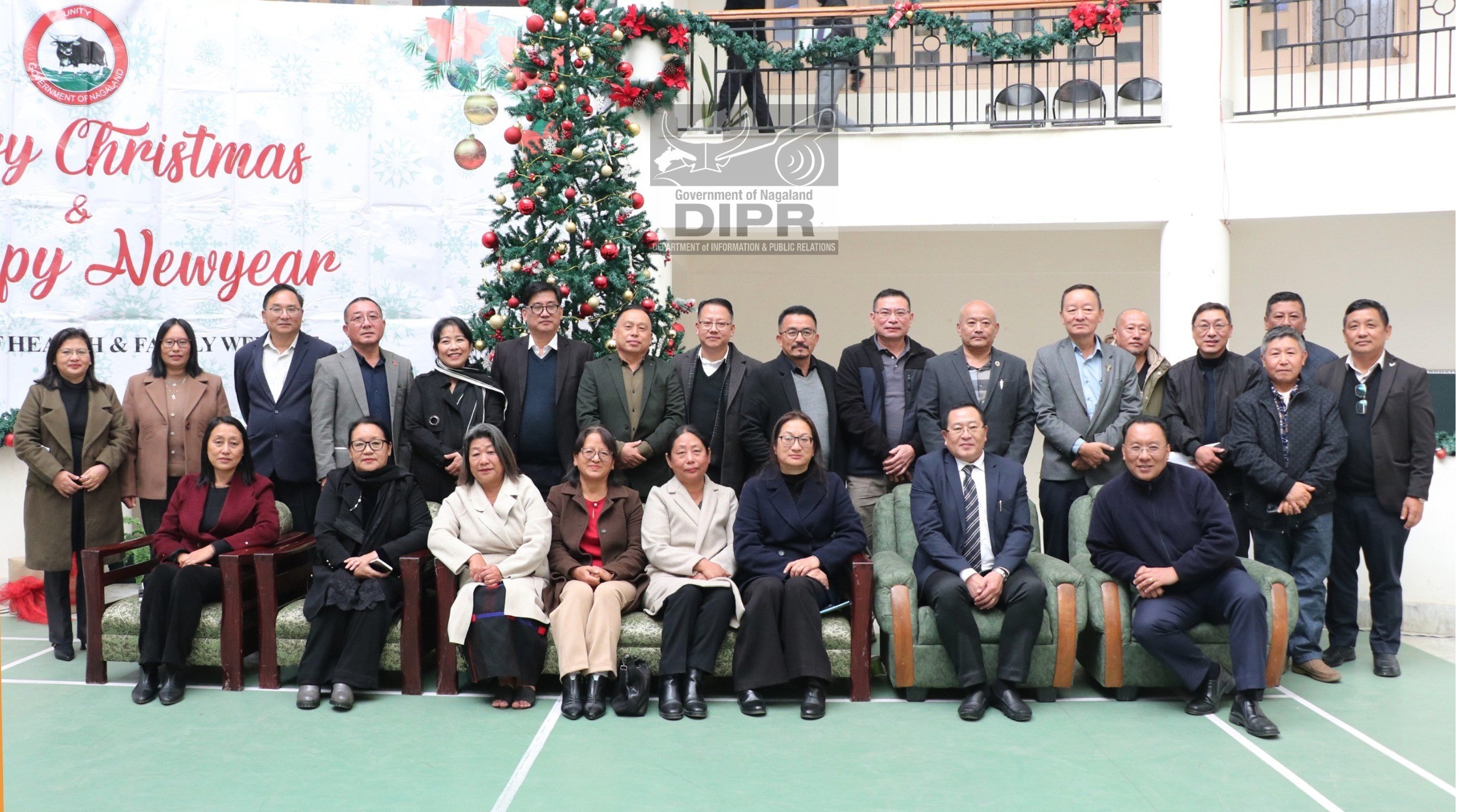One day training workshop on Integrated Health Information Platform (IHIP) VBD portal for state and district level was organized by National Vector Borne Diseases Control Programme (NVBDCP), Department of Health and Family Welfare was held at SIRD Auditorium Hall, Kohima on 26th November 2024.
Delivering a brief address, Dr. Sendimeren Aonok, Additional Director, Medical Education, highlighted the World Health Organization's IHIP Malaria focal point support to the Ministry of Health and Family Welfare in developing the Integrated Health Information Platform (IHIP). This platform aims to provide policymakers at all government levels with a unified view of India’s public health situation. Dr. Aonok also noted that the NVBDCP Nagaland has been reporting paperless data through the IHIP portal since August 2024.
He explained that the IHIP malaria module, developed in consultation with the NCVBDC, MoHFW allows for real-time reporting of malaria cases, event reporting, outbreak investigations, malaria-specific reports, essential administrative functions, and monitoring of malaria elimination activities.
Dr. Aonok emphasized the need for a comprehensive information system to track emerging and re-emerging public health threats, disasters, and mass events. According to Dr. Aonok, the platform collects data from diverse sources, including health workers, medical officers, epidemiologists, laboratory staff, surveillance officers, event-based systems, system-generated alerts, and even artificial intelligence. He stressed that the platform's electronic data collection eliminates the need for paperwork. Dr. Aonok further emphasized that, if used effectively, the platform could drive significant improvements in Nagaland's health sector.
Dr. Naveen Agarwal, WHO IHIP Malaria Focal Point New Delhi, and resource person for the training, noted that malaria surveillance has been a cornerstone of India’s public health efforts since 1950. He stated that, historically, around 7.5 Crore people suffered from malaria annually, with nearly 8 lakh fatalities. However, due to various initiatives, the number of malaria cases dropped to 1.76 lakh in 2022, with 83 deaths recorded.
Dr. Agarwal explained that malaria surveillance has now become an integral part of India’s primary healthcare system, with efforts focusing on group and community-level monitoring to detect changes in trends or distribution. He underscored the critical role of surveillance in the control and elimination of malaria, adding that the IHIP VBD module would further strengthen malaria surveillance activities by enabling early detection, prompt response, targeted interventions, and progress monitoring. The objective of the training, he said, is to build capacity for IHIP malaria reporting and prepare the state and districts for paperless data submission.
Dr. Samiksha Arora, Manager- Training & SNV NVBDCP, New Delhi also urged the participants to include RDT positive cases in the platform.
The welcome address was delivered by Dr. NeisakhoKere, SPO and Joint Director NVBDCP, while Dr. Tinurenla Anichari, Deputy Director NVBDCP chaired the training and the vote of thanks was pronounced by Imsubenla, State Consultant PH & Training.
IHIP Training was attended from State and district NVBDCP, JHPIEGO, state and district epidemiologist and data manager of IDSP.
Dr. Agarwal and Dr. Arora along with state and Kohima district NVBDCP also monitored PHC Seikhazou, Chiephobozou CHC and Botsa PHC on 27th November 2024. During the field visits they interacted with the Medical Officers, Surveillance Workers, Lab Technicians, ANMs & Health Unit staff on NVBDCP reporting system & implementation of IHIP IDSP & VBD portal.
(DIPR)




